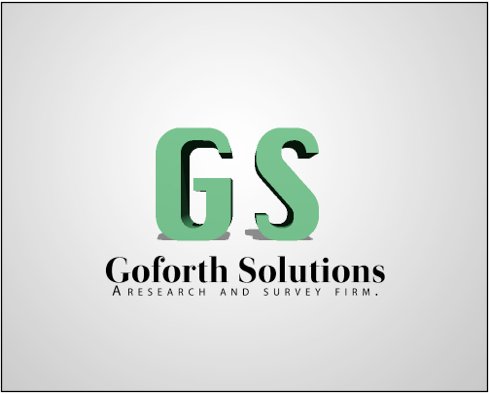Monday, March 13 - AI & the Future of Journalism
What: We will examine the AI field and its impact on journalism, for good and for ill. What features of AI hold the most peril for journalists? Which hold the most promise? How does an AI program actually work? Does AI threaten journalism jobs? Can journalists investigate AI tools? If so, how? Are there practical hacks for determining whether content is AI-generated or real?
Who: Garance Burke, global investigative reporter, The Associated Press; Daniel Verten, head of creative at Synthesia; Emilia Diaz Struck, International Consortium of Investigative Journalists; Justin Gluska, founder of Gold Penguin and AI technology blogger.
When: 6:30 pm, Eastern
Where: Zoom
Cost: Free but registration is required
Sponsor: The Deadline Club
More info
Tue, March 14 - Elevating Your Nonprofit's Online Presence: Best Website Practices for 2023
What: The trends and strategies that will help your organization stand out in the digital landscape. Whether you're a new or a well-established nonprofit, this webinar has everything you need to take your website to the next level. From mobile-first design to accessibility compliance, we'll cover all the essential elements that go into creating a seamless and satisfying online experience for your users.
Who: Erin Mastrantonio of Elevation which designing websites for nonprofits.
When: 11 am, Pacific
Where: Zoom
Cost: Free
Sponsor: The Nonprofit Learning Lab
More info
Fri, March 17 - Firewalls & Journalism: What to know about Internet shutdown trends
What: Join us for a virtual panel discussion that will delve deep into the worrying spread of Internet kill switches and what it specifically means for a free press.
Who: Ksenia Ermoshina, a senior researcher at Citizen Lab at the University of Toronto and Center for Internet and Society; Natalia Krapiva, tech-legal counsel for digital rights watchdog group Access Now; Nat Kretchun, senior vice president for programs at the Open Technology Fund; Moderator: Rachel Oswald, National Press Club press freedom team lead and a foreign policy reporter for CQ Roll Call
When: 11:30 am, Eastern
Where: Zoom
Cost: Free
Sponsors: National Press Club & The Journalism Institute
More info
Sat, March 18 - Ask an Editor: The Craft & Business of Writing
What: We will answer questions and offer insights into the craft of writing and the struggles we all face in these uncertain times.
When: 10 am, Pacific
Where: Zoom
Cost: Free
Sponsor: Allegory Editing
More info
Tues, March 21 - The state of digital publishing: metrics, insights and revenue strategies
What: A look at the current state of digital publishing and what will it look like in 2023 and beyond with information from Pugpig’s State of the Digital Publishing Market report. Including: Comparison of reader engagement across users and platforms, case studies of innovation in digital publishing, the use of audio and how it drives engagement, and how news publishers intend to retain readers in 2023.
Who: Jonny Kaldor, founder and CEO, Pugpig, a digital publishing platform for hundreds of news, consumer, specialist and B2B media brands.
When: Noon, Eastern
Where: Zoom
Cost: Free
Sponsor: America’s Newspapers to take a deeper look into the report.
More info
Tues, March 21 - AI-Generated Art: Boom or Bust for Human Creativity?
What: A discussion on how generative AI works, how artists are using these tools, and whether AI-generated art will be a boom or bust for human creativity.
Who: Ahmed Elgammal, Professor, Rutgers University; Patrick Grady, Policy Analyst, Center for Data Innovation; Marian Mazzone, Associate Professor, College of Charleston; Irene Solaiman, Director of Policy, Hugging Face; Brigitte Vézina, Director of Policy, Creative Commons
When: 11 am, Eastern
Where: Zoom
Cost: Free
Sponsor: The Center for Data Innovation
More info
Wed, March 22 - ChatGPT, Journalism, and the Future of Creativity
What: What happens when leading journalists who cover science and eminent scientists who reach mass audiences get together to exchange ideas? What do their differing perspectives tell us about how science communication is changing and how we can do it better?
Who: Joanna Stern writes and makes videos at the Wall Street Journal, where she is the senior personal technology columnist. She won an Emmy in 2021. Jean Oh is an associate research professor at Carnegie Mellon University who builds robots with advanced artificial intelligence capabilities.
When: 6:30 pm, Eastern
Where: Zoom
Cost: Free
Sponsor: The Journalism Institute at New York University
More info
Thu, March 23 - Undaunted: How Women Changed American Journalism
What: A discussion of the inspiring stories of pioneering women journalists. You’ll hear about the challenges they faced and how they paved the way for the next generation.
Who: Brooke Kroeger, Kim Todd, and Knopf editor Jonathan Segal about their book “Undaunted”
When: 7 pm, Eastern
Where: Zoom
Cost: Free
Sponsor: American Journalism Online
More info

